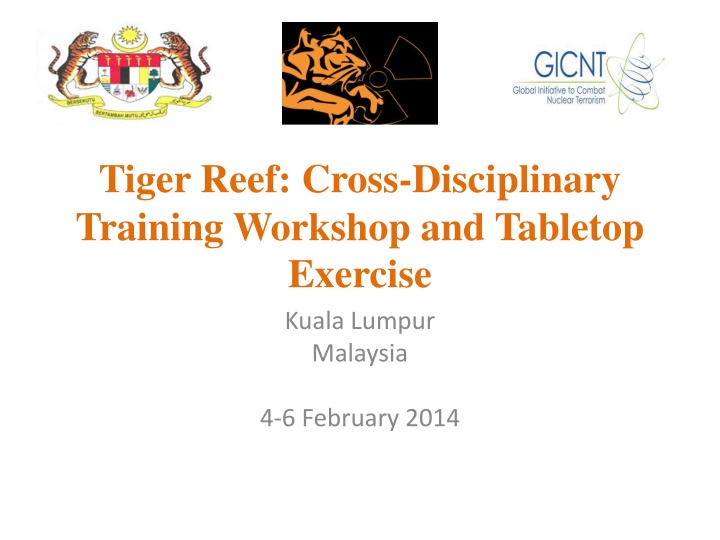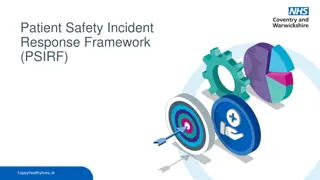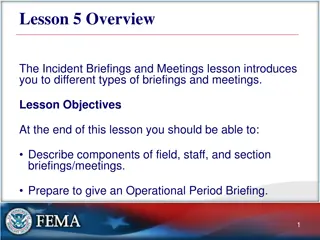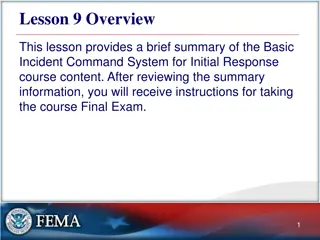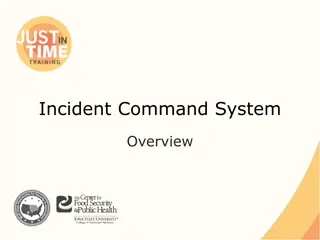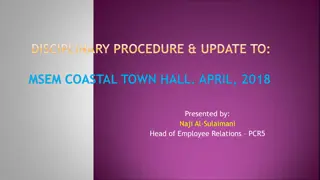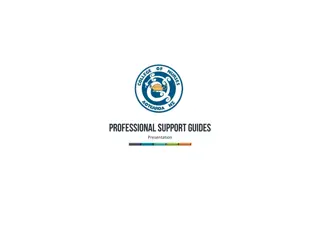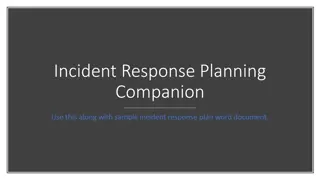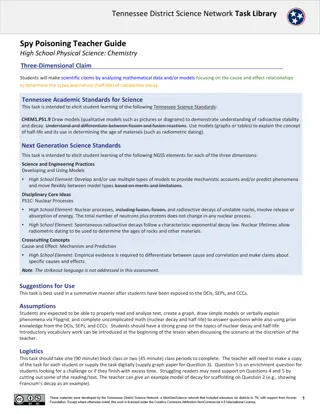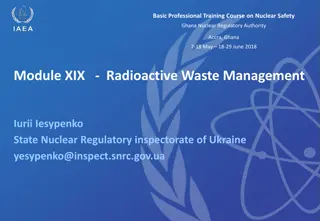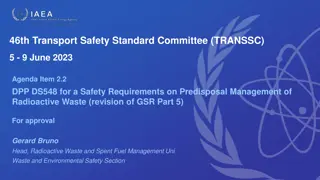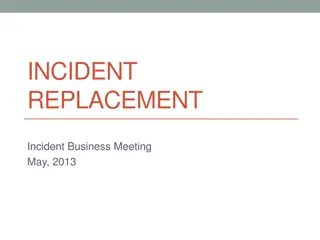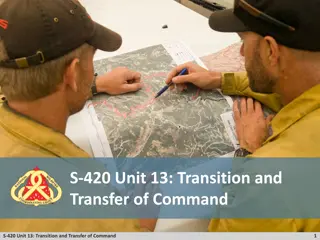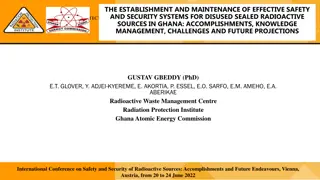Cross-Disciplinary Training Workshop on Radioactive Materials Incident Response
Emphasizing the importance of communication and cooperation between different communities, the Tiger Reef workshop in Kuala Lumpur focused on enhancing capabilities to manage incidents involving radioactive materials. With participants from 21 countries, the workshop aimed to bridge gaps in SOPs, conflicting priorities, and awareness levels while underscoring the value of cross-training various response organizations. Key lessons highlighted the effectiveness of coordination and communication among expert groups to improve preparedness and response strategies for real-world incidents.
Download Presentation

Please find below an Image/Link to download the presentation.
The content on the website is provided AS IS for your information and personal use only. It may not be sold, licensed, or shared on other websites without obtaining consent from the author.If you encounter any issues during the download, it is possible that the publisher has removed the file from their server.
You are allowed to download the files provided on this website for personal or commercial use, subject to the condition that they are used lawfully. All files are the property of their respective owners.
The content on the website is provided AS IS for your information and personal use only. It may not be sold, licensed, or shared on other websites without obtaining consent from the author.
E N D
Presentation Transcript
Tiger Reef: Cross-Disciplinary Training Workshop and Tabletop Exercise Kuala Lumpur Malaysia 4-6 February 2014
Participants 21 countries, 2 official observer organisations More than 100 participants
Objectives Emphasise communication and cooperation between the different communities responding to an incident involving radioactive materials Explore the complementary missions but often conflicting goals of the response and forensics communities Increase awareness of international resources available to assist in developing the capabilities to manage such a crime scene
Objectives Underscore the value of cross-training the various communities, and help identify gaps. Provide information on resources that may assist with cross-training.
Target Audience Response organisations (police, fire brigade, medical services, customs services etc.) Radiation and nuclear health and safety officials Nuclear science and technology organisation officials Senior-level policy and decision makers
Organisational Culture Each organisation has a set of assumptions, practices, beliefs and values that allow it to effectively function as a problem-solving system When separate organisations come together, rather than a smooth operation it can be a collision of cultures
Gaps Identified The SOP for the management of a radiological crime scene is not fully developed Conflicting priorities among different communities responding to an incident involving radioactive materials Level of awareness on radiological crime scene is still low among relevant agencies
Lessons Learned Tiger Reef participants effectively demonstrated that coordination and communication among groups of experts is not just possible, but ideal. Efforts to learn, coordinate, and collaborate across expert communities before an event occurs will enhance how these communities communicate and work together in a real world event.
Lessons Learned Important and useful training resources are currently available through many sources, including the IAEA, INTERPOL, the European Union, various centres of excellence, private industry, and bilateral government arrangements. Available training resources should be adapted to encourage cross-disciplinary training, or training across organisational or agency lines, to enhance coordination and communication in a crisis environment.
Outcomes Participants identified the following areas as focus points of interaction between organizations or groups of experts when developing national response plans or training programs for responding to a nuclear security event: establishing radiation zones; establishing access points; handling perimeter and other security issues; triage/rescue recovery/evacuation; decontamination; collecting and controlling evidence; coordinating public messaging; and responding to additional threats.
Outcomes Tabletop and field exercises are particularly valuable (even necessary) as part of a national cross-disciplinary training program. Countries should incorporate a graded approach to training and exercises, in which the complexity and scale of the training and exercises is gradually increased over time.
Next Steps Present analogies at future events: Tiger Reef included two presentations outside the nuclear sphere, namely cross-organisation communication and Malaysia s national response to a biological incident. Each of these presentations allowed participants a chance to break down barriers and begin interacting openly with one another, while also providing an opportunity to think outside of their typical day-to-day work.
Next Steps Promote training programs and activities of partner organisations: the GICNT will work with other partner organisations such as the IAEA and INTERPOL to uplift their current activities and collaborate to enhance training opportunities.
Next Steps Plan a follow-on event: the GICNT will hold a follow-on exercise on cross-disciplinary training in another region to draw new perspectives and continue the important work started in Malaysia.
